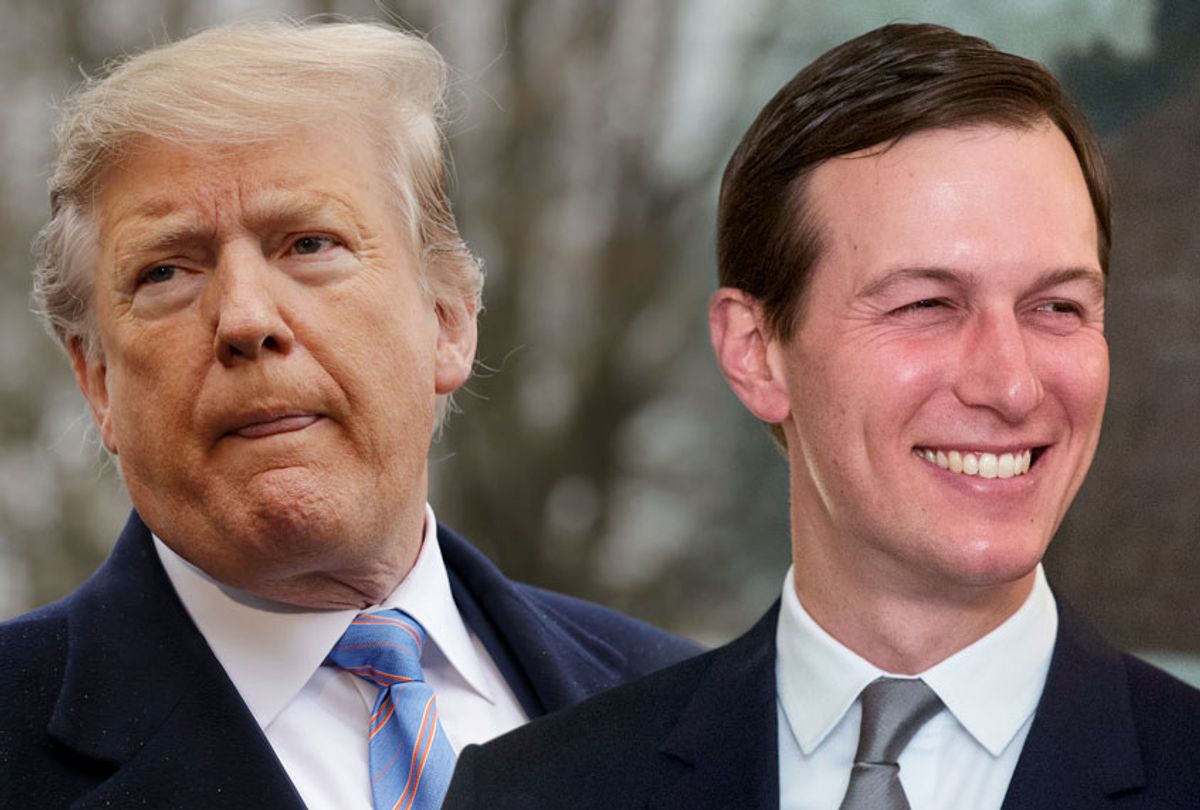Deutsche Bank was aware of potentially suspicious financial activity from the accounts of President Donald Trump and his son-in-law Jared Kushner but did not draw attention to the transactions, according to a new report.
Anti-money laundering specialists at Deutsche Bank suggested that a federal financial-crimes watchdog be informed of suspicious activities from the accounts of both Trump and Kushner in 2016 and 2017, according to The New York Times. That recommendation was reportedly rejected by executives at Deutsche Bank, consistent with the bank's "lax approach "to money laundering laws." Both Trump and Kushner have been lucrative clients for the financial institution.
Although the Times' report did not go into detail about the nature of the transactions, it stated that at least some of the transactions involved the now-defunct Trump Foundation and that they "set off alerts in a computer system designed to detect illicit activity, according to five current and former bank employees." The report also noted that "at least some of them involved money flowing back and forth with overseas entities or individuals, which bank employees considered suspicious."
Although one former Deutsche Bank anti-money laundering specialist, Tammy McFadden, claims that she was dismissed after raising concerns about the bank's behavior, a spokesperson for the institution denies any wrongdoing.
Kerrie McHugh, a Deutsche Bank spokeswoman, claimed that the bank's issues with its anti-money laundering program stem from the fact that it "requires sophisticated transaction screening technology, as well as a trained group of individuals who can analyze the alerts generated by that technology both thoroughly and efficiently."
"At no time was an investigator prevented from escalating activity identified as potentially suspicious," she added. "Furthermore, the suggestion that anyone was reassigned or fired in an effort to quash concerns relating to any client is categorically false."
Deutsche Bank, which has been subpoenaed by the House Financial Services and Intelligence Committees, has long been the subject of scrutiny and speculation due to its close relationship with Trump. The future president first developed a relation with Deutsche Bank when his numerous defaults and other financial failures made him toxic to most other financial lending institutions. Over the years, Deutsche Bank loans have loaned hundreds of millions of dollars for his Trump Marina casino in Atlantic City, although that eventually fell through when it was revealed that a credit officer's signature had been forged; renovations of his Art Deco tower at 40 Wall Street (a $125 million loan that went through); and a skyscraper across from the U.N. headquarters on the East Side of Manhattan (a $300 million loan that also went through).
Perhaps Deutsche Bank's most controversial investment was its decision to loan Trump $500 million for a 92-story Trump skyscraper in Chicago. Trump tried to avoid paying that amount after the 2008 economic crash and the bank decided to sever ties with him, although eventually the two parties reached a settlement.
As the Times reported in March, "Deutsche Bank officials have quietly argued to regulators, lawmakers and journalists that Mr. Trump was not a priority for the bank or its senior leaders and that the lending was the work of a single, obscure division. But interviews with more than 20 current and former Deutsche Bank executives and board members, most of them with direct knowledge of the Trump relationship, contradict the bank’s narrative."

Shares